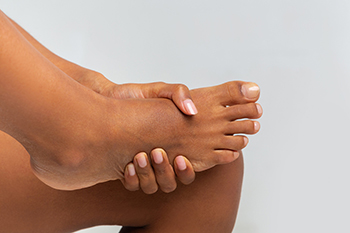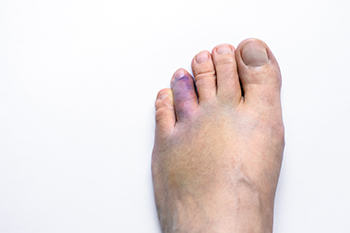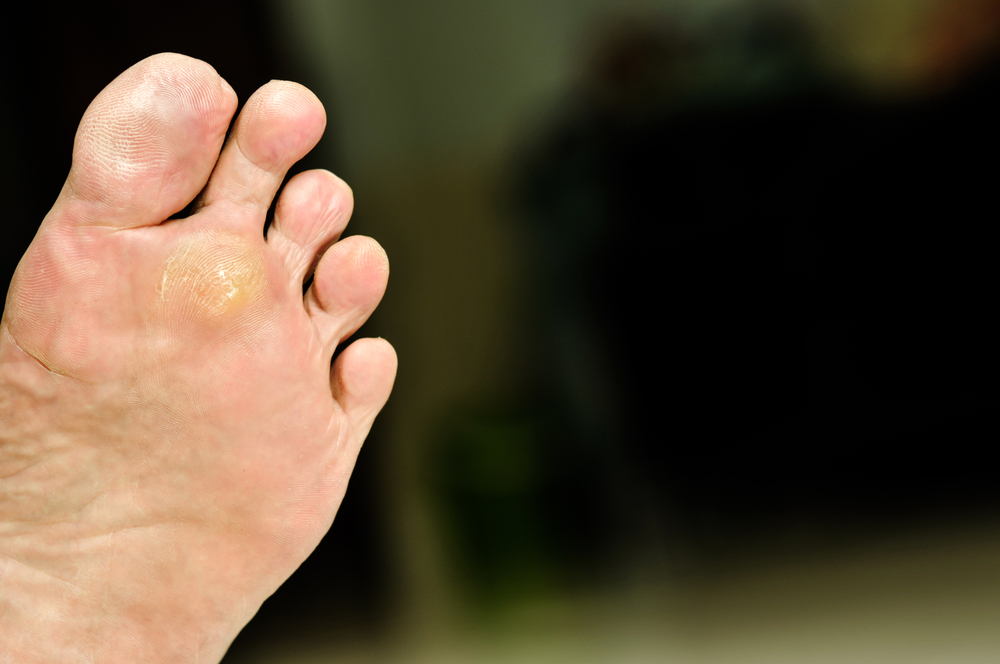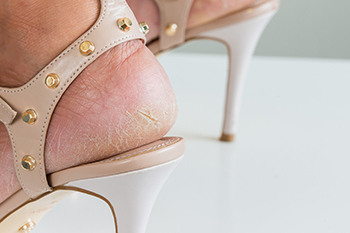Items filtered by date: April 2023
Foot Injuries and Jumping Rope

Jumping rope can be an exciting and exhilarating activity. Nostalgic for some and physically challenging for others, jumping rope is an activity that many can enjoy. However, if one is not careful, jumping rope can lead to a foot injury. For example, if you are not jumping rope on the right surface, then injury can result. Some individuals might jump rope on hard surfaces like concrete, leading to shin splints. Rather, you might consider jumping rope on a surface that offers more shock absorption. This will ultimately put less stress on the joints of the feet as well. If you are someone that exercises by jumping rope, then it is suggested that you schedule an appointment with a podiatrist today for advice and treatment.
Exercising your feet regularly with the proper foot wear is a great way to prevent injuries and build strength. If you have any concerns about your feet, contact Dr. Ronald Sheppard from Warren-Watchung Podiatry Center. Our doctor can provide the care you need to keep you pain-free and on your feet.
Exercise for Your Feet
Exercise for your feet can help you gain strength, mobility and flexibility in your feet. They say that strengthening your feet can be just as rewarding as strengthening another part of the body. Your feet are very important, and we often forget about them in our daily tasks. But it is because of our feet that are we able to get going and do what we need to. For those of us fortunate enough to not have any foot problems, it is an important gesture to take care of them to ensure good health in the long run.
Some foot health exercises can include ankle pumps, tip-toeing, toe rises, lifting off the floor doing reps and sets, and flexing the toes. It is best to speak with Our doctor to determine an appropriate regimen for your needs. Everyone’s needs and bodies are different, and the activities required to maintain strength in the feet vary from individual to individual.
Once you get into a routine of doing regular exercise, you may notice a difference in your feet and how strong they may become.
If you have any questions please feel free to contact one of our offices located in Marlboro and Watchung, NJ . We offer the newest diagnostic and treatment technologies for all your foot and ankle needs.
Toe Fractures in Children

When a child breaks a bone in their toe, it is called a toe fracture. Such a fracture will often result in pain, redness, swelling, and bruising. It might be difficult to bend their toe or put weight on it. If a bone is protruding from the toe or bent at an abnormal angle, immediate medical care should be sought. An X-ray or MRI may be needed to properly diagnose a toe fracture and differentiate it from a possible sprain. If your child has sustained a toe fracture, the buddy taping method or splint may be used to support the toe in its correct position during healing. Buddy taping means taping the broken toe to the toe next to it. A walking boot, hard-soled shoe, or other supportive devices may also help your child move while their toe is undergoing healing. If you think your child may have a broken toe, it is suggested that you visit a podiatrist to have it examined, have necessary tests taken, and obtain treatment.
Broken toes may cause a lot of pain and should be treated as soon as possible. If you have any concerns about your feet, contact Dr. Ronald Sheppard from Warren-Watchung Podiatry Center. Our doctor will treat your foot and ankle needs.
What Is a Broken Toe?
A broken toe occurs when one or more of the toe bones of the foot are broken after an injury. Injuries such as stubbing your toe or dropping a heavy object on it may cause a toe fracture.
Symptoms of a Broken Toe
- Swelling
- Pain (with/without wearing shoes)
- Stiffness
- Nail Injury
Although the injured toe should be monitored daily, it is especially important to have a podiatrist look at your toe if you have severe symptoms. Some of these symptoms include worsening or new pain that is not relieved with medication, sores, redness, or open wounds near the toe.
If you have any questions, please feel free to contact one of our offices located in Marlboro and Watchung, NJ . We offer the newest diagnostic and treatment technologies for all your foot care needs.
Wounds That Don't Heal Need to Be Checked
Plantar Warts or Corns?

Plantar warts and corns are two distinct, yet similar, foot conditions that often get confused with one another. Plantar warts are growths on the feet spread by the human papillomavirus, whereas corns are thickened areas of the skin that grow in response to pressure. In order to determine whether an area of the feet is technically a plantar wart or a corn, a medical professional may examine the location of the affected area of the skin. For example, corns are usually adjacent to bones whereas this is not always necessarily the case with a plantar wart. Also, a medical professional may perform a squeeze test where the sides of the affected skin are gently squeezed together. If the patient feels no pain, this might mean that they have a corn rather than a plantar wart. If you believe that you might have a plantar wart or a corn, it is suggested that you contact a podiatrist for treatment.
Plantar warts can be very uncomfortable. If you need your feet checked, contact Dr. Ronald Sheppard from Warren-Watchung Podiatry Center. Our doctor will assist you with all of your foot and ankle needs.
About Plantar Warts
Plantar warts are the result of HPV, or human papillomavirus, getting into open wounds on the feet. They are mostly found on the heels or balls of the feet.
While plantar warts are generally harmless, those experiencing excessive pain or those suffering from diabetes or a compromised immune system require immediate medical care. Plantar warts are easily diagnosed, usually through scraping off a bit of rough skin or by getting a biopsy.
Symptoms
- Lesions on the bottom of your feet, usually rough and grainy
- Hard or thick callused spots
- Wart seeds, which are small clotted blood vessels that look like little black spots
- Pain, discomfort, or tenderness of your feet when walking or standing
Treatment
- Freezing
- Electric tool removal
- Laser Treatment
- Topical Creams (prescription only)
- Over-the-counter medications
To help prevent developing plantar warts, avoid walking barefoot over abrasive surfaces that can cause cuts or wounds for HPV to get into. Avoiding direct contact with other warts, as well as not picking or rubbing existing warts, can help prevent the further spread of plantar warts. However, if you think you have developed plantar warts, speak to your podiatrist. He or she can diagnose the warts on your feet and recommend the appropriate treatment options.
If you have any questions please feel free to contact one of our offices located in Marlboro and Watchung, NJ . We offer the newest diagnostic and treatment technologies for all your foot and ankle needs.
Summer and Winter Months May Cause Cracked Heels

The winter months can cause the skin on the heels to become dry and ultimately crack. It can cause pain and discomfort, and deep cracks which are known as fissures, may bleed and become infected. Cracked heels can also develop during the summer months, and this may be a result of wearing shoes that have an open back, such as flip-flops or sandals. Additionally, there may be existing medical conditions that can cause cracked heels. These can include eczema and psoriasis, which may cause a lack of moisture in the skin. The moisture levels in the skin may also be affected by using hot water from taking a hot shower. Replenishment of these levels can increase by drinking plenty of water daily, in addition to consuming hydrated foods. People who have diabetes may be prone to developing cracked heels. Neuropathy, which is a common condition among diabetic patients, may cause the skin to lose moisture, possibly resulting in this uncomfortable foot condition. If you have developed cracked heels, it is suggested that you consult with a podiatrist who can help you to find permanent relief, by possibly prescribing medicine.
Cracked heels are unsightly and can cause further damage to your shoes and feet. If you have any concerns, contact Dr. Ronald Sheppard from Warren-Watchung Podiatry Center. Our doctor can provide the care you need to keep you pain-free and on your feet.
Cracked Heels
Cracked heels appear unappealing and can make it harder for you walk around in sandals. Aside from looking unpleasant, cracked heels can also tear stockings, socks, and wear out your shoes. There are several methods to help restore a cracked heel and prevent further damage.
How Do You Get Them?
Dry skin is the number one culprit in creating cracked heels. Many athletes, walkers, joggers, and even swimmers suffer from cracked heels. Age and skin oil production play a role to getting cracked heels as well.
Promote Healing
Over the counter medicines can help, especially for those that need instant relief or who suffer from chronic dry feet.
Wear Socks – Wearing socks with medicated creams helps lock in moisture.
Moisturizers – Applying both day and night will help alleviate dryness which causes cracking.
Pumice Stones – These exfoliate and remove dead skin, which allows for smoother moisturizer application and better absorption into the skin.
Change in Diet
Eating healthy with a well-balanced diet will give the skin a fresh and radiant look. Your body responds to the kinds of food you ingest. Omega-3 fatty acids and zinc supplements can also revitalize skin tissue.
Most importantly, seek professional help if unsure how to proceed in treating cracked heels. A podiatrist will help you with any questions or information needed.
If you have any questions, please feel free to contact one of our offices located in Marlboro and Watchung, NJ . We offer the newest diagnostic and treatment technologies for all your foot care needs.

